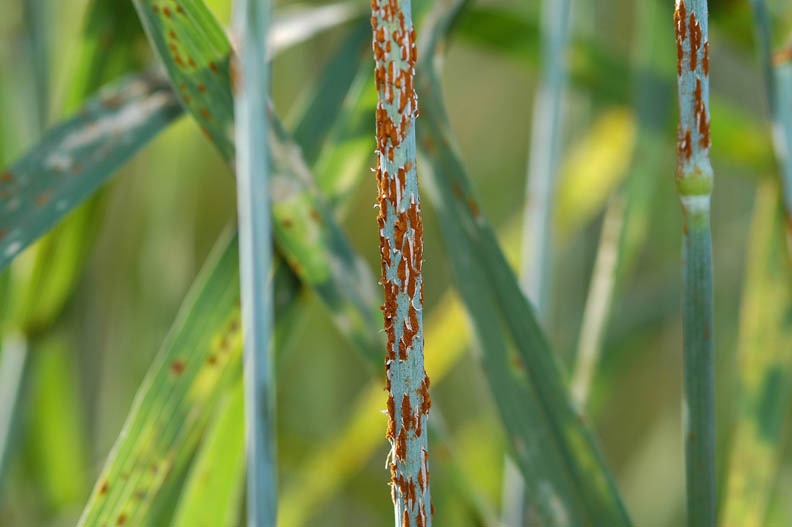February 16, 2011

In addition to fighting the Taliban and securing a sustainable future for Afghanistan, 17 soldiers from the Third Brigade, 10th Mountain Division, have been enlisted in a different kind of battle -- the battle against wheat rust.
The Army soldiers traded their barracks at Fort Drum for a Cornell classroom Feb. 9-10 to learn about the challenges faced by Afghan farmers. They were armed with information ranging from soil health to fruit production and animal herd management in the hope that they will be able to transfer that knowledge to the field when they are deployed in a month.
For example, Peter Hobbs, professor of crop and soil sciences in the College of Agriculture and Life Sciences, who spent several years in the region working with nongovernmental organizations, lectured on wheat.
If Afghanistan is going to become self-sufficient, it will need to produce about 5.3 million tons of wheat each year, he said. Its ability to meet that need is highly variable, however, as more than half of Afghan farms are not irrigated and thus at the mercy of the weather. In 2008, less than 3 million tons were produced, while a rainy 2009 meant a yield of 5 million tons.
The impending threat of Ug99 wheat rust -- dubbed the "H1N1 of the wheat world" -- could further jeopardize Afghan agriculture, he warned.
"It's already in neighboring Iran, and we are expecting it to hit Afghanistan probably in the next year or so," Hobbs said. "Farmers don't know this. They don't know it's on its way."
One strategy to combat the spread is to replace current crops with varieties that are resistant to Ug99. Hobbs urged the soldiers to be diligent about introducing the right seeds.
"I do believe if you can help these Afghan farmers get these improved seeds, and then the rust comes and their crops are spared, they are going to be very happy," he added.
Lt. Kim Duenow, a former veterinary technician and nurse, said the lesson will be handy in her mission to help strengthen the Afghan infrastructure and promote self-sufficiency as the country tries to transition from an opium economy.
"These are really great ways to think of ideas of how we can better help people," she said. "We get to provide them something that they can continue to access after we leave."
Central "ag team"
Duenow is one of six soldiers in a central "ag team" who received an additional two months of training by Cornell Cooperative Extension (CCE) of Jefferson County.
"A lot of what we were trying to impress upon them was how to communicate with farmers so they can become resources for the locals, go-to guides for information regarding agriculture," said CCE dairy and livestock specialist Ronald Kuck.
The other participants of the Cornell educational sessions will be dispatched around Afghanistan in different battalions.
Staff Sgt. David Thomasson, who grew up on a 1,600-acre cattle and vegetable farm in North Carolina, was already familiar with the conditions in Afghanistan, having been deployed there three times before. He said learning the differences between agriculture in the two countries will better enable him to do outreach.
"I will have a little more knowledge, for myself and to share with other people," Thomasson said.
The event is part of an extensive CCE outreach effort into the Fort Drum community. Another recent initiative in collaboration with 4-H involved engaging military children and their families in such "civic ecology" projects as gardening, tree planting, stream restoration and invasive species removal.
You May Also Like




